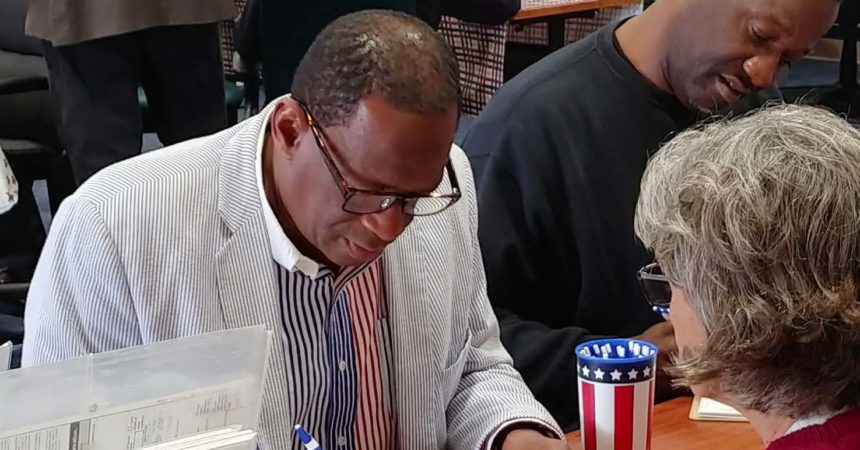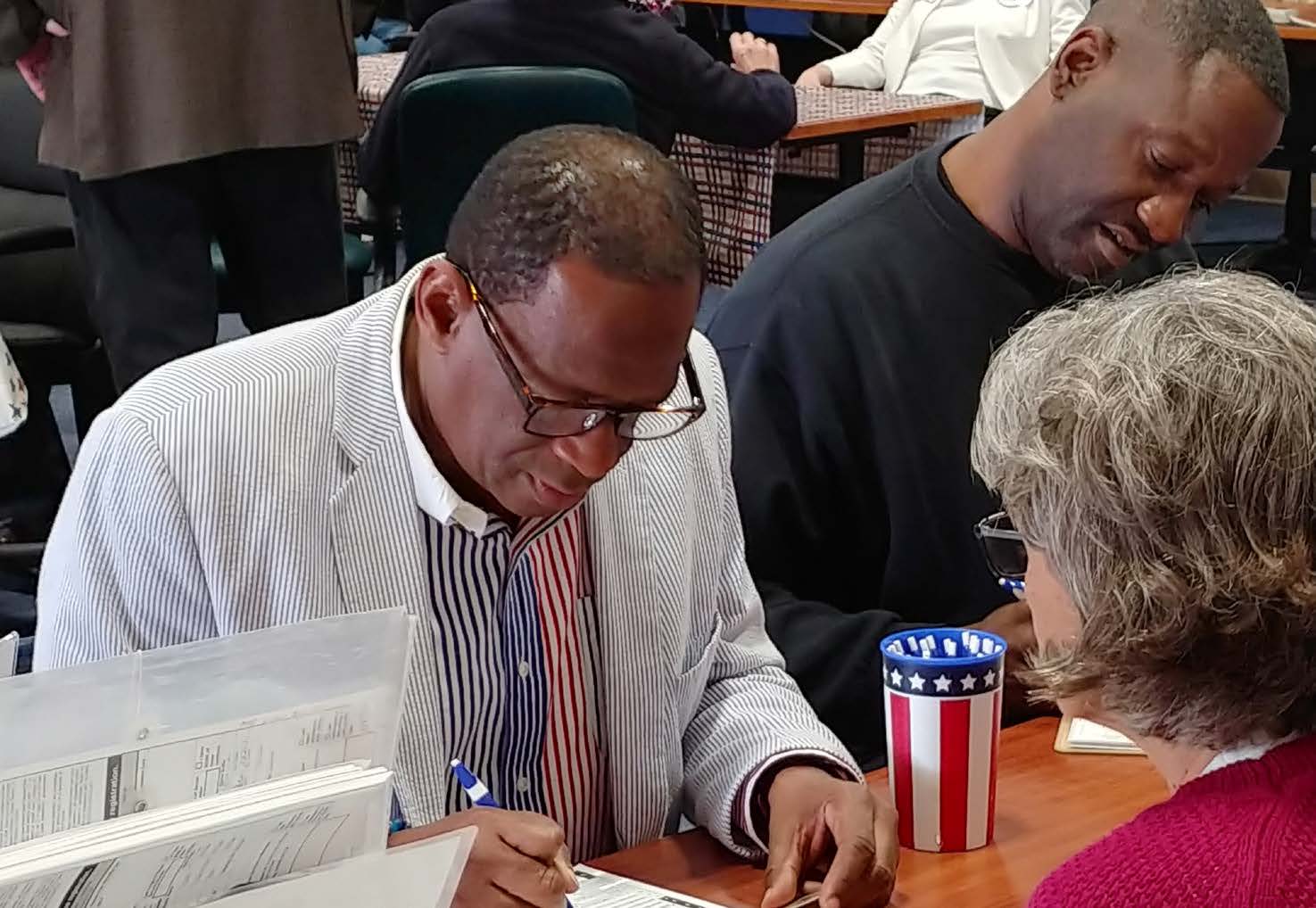
Restoration of voting rights begins for ex-felons

Pastor Greg James was among the ex-felons who registered to vote on Tuesday.
Photo by St. Clair Murraine
By St. Clair Murraine
Outlook staff writer
A little more than a month after Florida voters overwhelmingly passed Amendment 4, several ex-felons showed up at Leon County Supervisor of Elections office to have their rights restored.
A steady flow of mostly men showed up early Tuesday morning to take what they consider the final step in being exonerated. It was the first day for the registrations, although it will continue until 29 days before the next elections, according to Supervisor Mark Earley.
Amendment 4 cleared the way for 1.4 million ex-felons to have their rights restored, with the exception of those who were convicted of murder or sex crimes. However, anyone who has an outstanding probation or fees has to clear those before registering to vote.
Greg James, pastor of Life Church International Center, showed up wearing a red, white and blue striped shirt. He’d waited several years for the opportunity to be an eligible voter.
“What makes today so significant is the fact that the dynamics of the system change; the hope of restoration of a man or a woman who was excommunicated through the process of being disenfranchised,” said James, himself an ex-felon. “Now he or she has regained hope of shaping our democracy of what our country, our state, our city is going to look like.”
James was one of the advocates of Amendment 4, which got on the ballot after more than 700,000 people signed a petition. The measure got much more than the required 60 percent of the votes needed to be written into the constitution.
Supporters of Amendment 4 included the Big Bend Voting Rights Project. The organizations played a big role informing ex-felons of their right after the November elections.
Former Leon County Commissioner Bob Ratcliff, who headed up the voting rights project, said giving ex-felons back their right to vote is long overdue.
“The vote in November undid a 150-year-old lifetime ban on voting by ex-felons,” he said. “It’s been in the constitution for 150 years and nobody did anything about it until the voters took the initiative and approved Amendment 4. It’s a historic day.”
The day was a reprieve for 37-year-old Vashon Ransom, who participated in the Ready 4 Work re-entry program. He lost his right to vote soon after he turned 18 and began to have run-ins with the law.
“It feels good,” he said, after completing his voter’s registration form. “With the concept that every vote counts, I want to make sure that my vote is included. I’m very excited about that.”
While making a point that just registering to vote is only part of the process, Eric McKinnon, said the next push will be to actually get the new voters to participate in elections. McKinnon, owner of Leola’s Crab Shack, was among those on the front like pushing for Amendment 4.
“Because we have been denied for so long, we’re hoping all those who register take advantage of the opportunity to vote,” he said. “You are talking about over 1 million people in Florida and that number could change the outcome in an election period.”
McKinnon, who said he served six years on a drug charge and was released in 2000, said he felt a sense of freedom after he registered.
“Being a business owner and doing different things in my community and not being able to vote weighed real heavily on a lot of us,” he said. “We want to be a part the decision-making by those that are placed in office. It’s an important role for us to be able to vote again. We are excited about it and it will now help us feel connected to the community.”
Prior to Amendment 4, clemency and restoration of voting rights were up to the sitting governor and members of his cabinet. In fact, Judge Mark Walker ruled early last year that the process was unconstitutional.
Amendment 4 thwarted any further arguments.
“We are at a place now that our voice could be heard,” said James. “Everything is driven by numbers (and) now we’ve got a chance to sit at the table with a number behind our name.
“Going to prison, there was a number beside our names. Now we sit to the table with a number behind our name. When we sit down with committees to talk about prison reform, and issues around our city and state, the number of registered voters will be a whole new voting bloc.”






